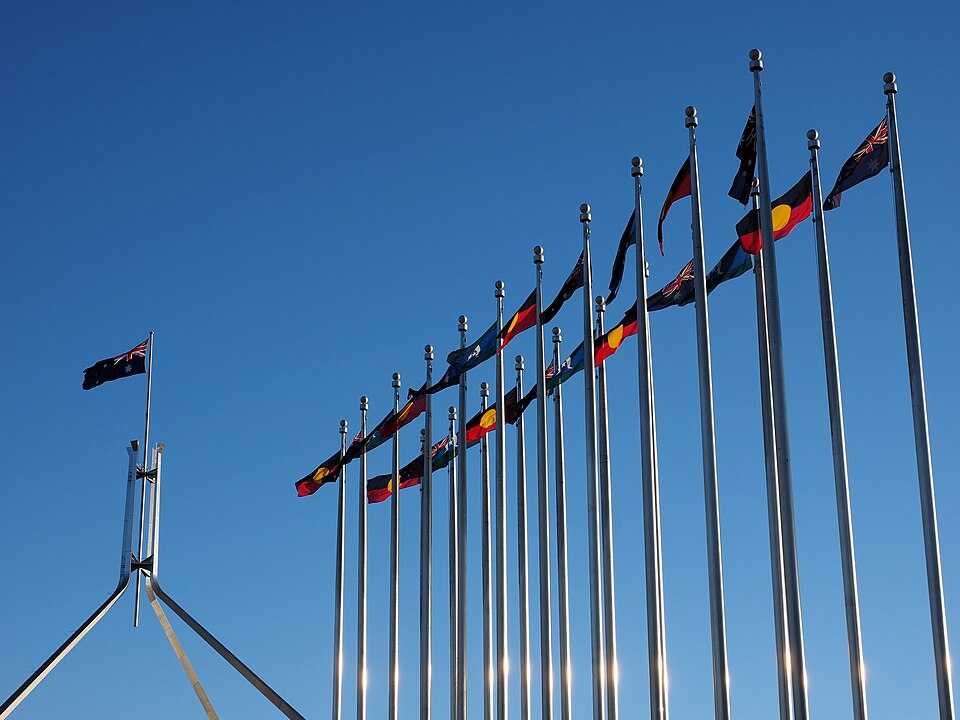This week in Australian foreign affairs: Wong announces humanitarian assistance for Myanmar; ADF completes Operation Solania in the Republic of the Marshall Islands; trilateral AUKUS Maritime Innovation Challenge 2025 released, and more.
Minister for Foreign Affairs Penny Wong joined Minister for International Development and the Pacific Pat Conroy on 30 March to announce humanitarian assistance for Myanmar following a 7.7 magnitude earthquake on Friday. The humanitarian relief will be provided through the International Committee of the Red Cross (ICRC). The announcement also makes clear that no direct funding will be provided to the military regime. “The ongoing crisis in Myanmar is a major threat to stability in our region. Australia continues to provide support in response to the worsening humanitarian situation,” the statement reads. The earthquake “caused extensive damage to infrastructure and loss of life in Mandalay and Nay Pyi Taw, as well as in surrounding regions, with hospitals overwhelmed. Neighbouring countries, including Thailand, have also been impacted.” Australia also “welcomes the release of US$5 million from the UN Central Emergency Response Fund (CERF) to support urgent needs such as shelter, food and water. Australia is a longstanding donor to the CERF.”
Two days later, on 2 April, Wong and Conroy announced further humanitarian assistance for Myanmar, building on the initial AUD$2 million. This follows an update on the situation, which “has caused significant loss of life, injury and extensive damage to homes, businesses and critical infrastructure.” According to the statement, “the earthquake has already claimed over 2,700 lives, with almost 4,500 reported injured. These numbers are expected to rise as rescuers gain access to remote areas and rubble is cleared.” The additional support will include: “$3.5 million to Australian NGOs and their local partners with a focus on food, water and sanitation and emergency health and education, and $500,000 contribution to the Emergency Action Alliance appeal; [and] $3 million for emergency relief supplies and to support the efforts of the ASEAN Coordinating Centre for Humanitarian Assistance on Disaster Management.” The government has also mobilised a rapid response team to help coordinate disaster relief efforts on the ground with international partners. The announcement also highlights credible reports that “the regime continues to conduct air strikes in earthquake affected areas, exacerbating the suffering of the people of Myanmar and complicating already difficult relief efforts.” The government condemns “these acts and call on the military regime to immediately cease military operations and allow full humanitarian access to affected areas.”
On 31 March, the Department of Defence announced the completion of the Australian Defence Force’s (ADF) first maritime and aerial surveillance activity for Operation Solania in the Republic of the Marshall Islands (RMI). The “ADF is assisting the Pacific Islands Forum Fisheries Agency (FFA) to detect and deter illegal, unreported, and unregulated fishing activities,” providing “intelligence, surveillance and reconnaissance support to Pacific Island countries that contribute to regional security.” For the operation, the ADF deployed a “Royal Australian Air Force C-27J Spartan from 35 Squadron and supporting personnel to Kwajalein to support the maritime surveillance of RMI’s EEZ.”
Also on 31 March, Australia and its AUKUS partners the United Kingdom and the United States released the trilateral AUKUS Maritime Innovation Challenge 2025. The program seeks to connect the governments “to the very best technology across our industrial and innovation sectors to deliver cutting-edge capabilities to our defence forces.” The challenge was first held in 2024, bringing together AUKUS innovation systems for rapid development in operational scenarios. In the 2025 iteration, “Australia’s Advanced Strategic Capabilities Accelerator (ASCA) will lead the Australian component, and work with the United Kingdom’s Defence and Security Accelerator and United States’ Defense Innovation Unit. In February 2025, Advanced Design Technology and Penten entered into contracts with ASCA, following successful participation in last year’s AUKUS Electronic Warfare Innovation Challenge. The contracts, valued at a combined AUD $8 million, support the development and demonstration of electronic warfare prototypes that address Australian Defence Force operating requirements.”
A Royal Australian Air Force P-8A Poseidon maritime patrol aircraft and crew has been deployed under Operation Argos, according to a statement on 1 April. The operation reaffirms Australia’s commitment to enforcing United Nations Security Council (UNSC) sanctions against North Korea and forms a “critical component of Australia’s broader effort to prevent illicit maritime activities, including ship-to-ship transfers of sanctioned goods.” The aircraft and crew will operate from Kadena Air Base in Japan, and will conduct aerial surveillance missions, “contributing to regional security and supporting international sanctions enforcement.” Australia has “deployed maritime patrol aircraft 15 times and Royal Australian Navy vessels 12 times under Operation Argos” since 2018.
Dr Adam Bartley is the managing editor for AIIA’s Australian Outlook and weekly columnist for The Week in Australian Foreign Affairs. He is a former Fulbright Scholar and non-resident fellow at the Elliot School for International Affairs, the George Washington University. Adam also has positions as post-doctoral fellow at the Centre for Cyber Security Research and Innovation RMIT University and as program manager of the AI Trilateral Experts Group. He can be found on Twitter here.
This article is published under a Creative Commons License and may be republished with attribution.



